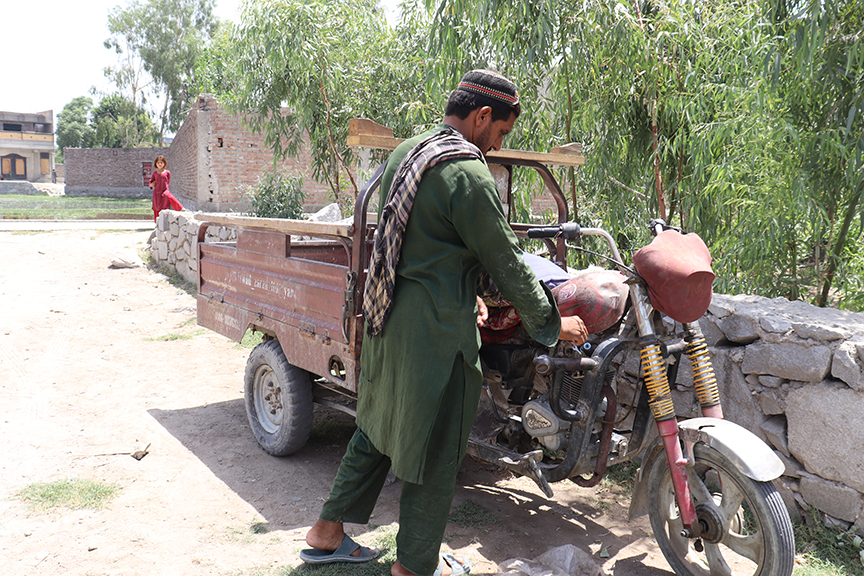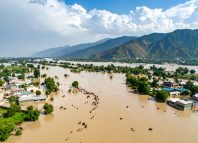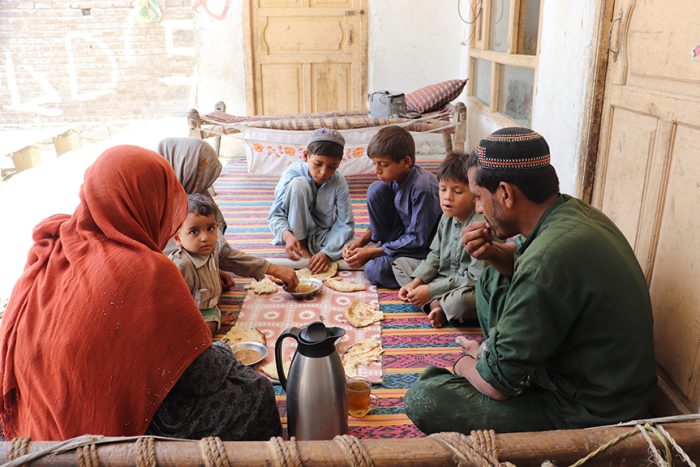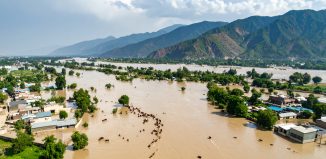Arduous Reintegration Journey of Forcibly Returned Sabz Ali
Sabz Ali, a 36-year-old father of eight children aged between 14 and six months, lives in Mirwais Mena1. He migrated to Pakistan in 2021 due to conflict and economic hardship following the takeover by the
de facto authorities in Afghanistan.
Before the takeover, Ali worked as a construction daily wage laborer, earning an average of AFN 350, (approx USD 4.3) which was sufficient to meet his family’s needs. After seeking refuge in Pakistan, he resumed work by collecting scrap metal and other waste materials from the streets to sell, ensuring their basic needs were met. However, their stability was short-lived, as they faced deportation by the interim Pakistan government in June 2023.
Given the current situation in Afghanistan, reintegration is extremely challenging for a sole provider. Ali, who uses his three-wheel cargo motorcycle to transport goods between markets, now struggles to earn even AFN 150-200 (approx USD 2.8) per day.
“Meeting my family’s essential needs, such as nutritious food, basic necessities, education, and medical care, is extremely difficult given the current situation in the country for daily wage workers. I earn no more than 200 AFN per day, which is far from enough to support my family,” said Ali.

The challenges faced by Ali, as the sole provider for his large family, highlight the difficulties of reintegration in Afghanistan. Even with full-time work as a delivery driver, covering basic household expenses remains a struggle.
Four of Ali’s children are of school age, but they do not attend school2 because he cannot afford their clothes and stationery. Instead, they stay at home. His eldest daughter helps her mother with everyday household chores while her mother also looks after their eight-month-old baby. The family lives in a rented house for which they pay AFN 3000 (approx USD 42). They lack adequate household essentials, having sold all their assets to reach Pakistan in 2021. When deported, they were unable to bring their limited household items back to Afghanistan.
“We couldn’t bring our essentials with us. We don’t have enough kitchen utensils, blankets, carpets, or beds. We only have one small, thin carpet, but in Afghanistan, we usually need large, thick carpets due to the weather conditions here,” Ali lamented.
Their most pressing need was food, as half of Ali’s income goes towards rent and other bills. They relied on low-nutrition foods like noodles, potatoes, and white rice for one meal daily. For the other two meals, they often subsist on wheat bread. Sometimes, the parents skipped meals so their children had something to eat.

Given the ongoing humanitarian crisis in Afghanistan, Community World Service Asia (CWSA) launched several initiatives to support returnees. In mid-March 2024, the emergency project team conducted a participant selection assessment in Jalalabad city, where Ali’s household was identified as a large, highly vulnerable returnee family, struggling with severe food insecurity and relying on a single breadwinner. Due to these critical factors, Ali was selected to participate in a cash-for-food support intervention, a project supported by CWSA’s Japanese partners.
The project, titled “Cash Assistance for Food Security of Returnees from Pakistan in Nangarhar,” was funded by the Japan Platform (JPF) and targeted 150 households in Nangarhar province, all of which had recently been deported from Pakistan.
In April 2024, Ali received the first installment of cash-for-food assistance, totaling USD 75, followed by two additional installments in May and June 2024. The project was designed to provide crucial support to vulnerable returnee families like Ali’s, who were facing severe food insecurity upon their return to Afghanistan.
He shared, “I used the cash to purchase essentials like flour, rice, pulses, oil, sugar, salt, and vegetables. Since returning from Pakistan, my children have been suffering from a lack of nutritious food. Thanks to this aid, we can now enjoy nutritious meals every day.”
Ali expressed deep gratitude for the assistance, recognising it as crucial support that alleviated his family’s severe food insecurity. “Seeing my children have enough to eat since our return brings happiness to me and my wife. We no longer feel stressed about the next meal,” Ali shared.
Due to the project’s support, Ali’s family has achieved food security, with their essential nutritional needs being met. However, despite this short-term relief, Ali remains hopeful about securing a job that can support him in the long term and help build his family’s resilience. He believes that with a sustainable income and stable employment, he could send his children to school, ensuring they don’t have to endure the same hardships he has faced.







